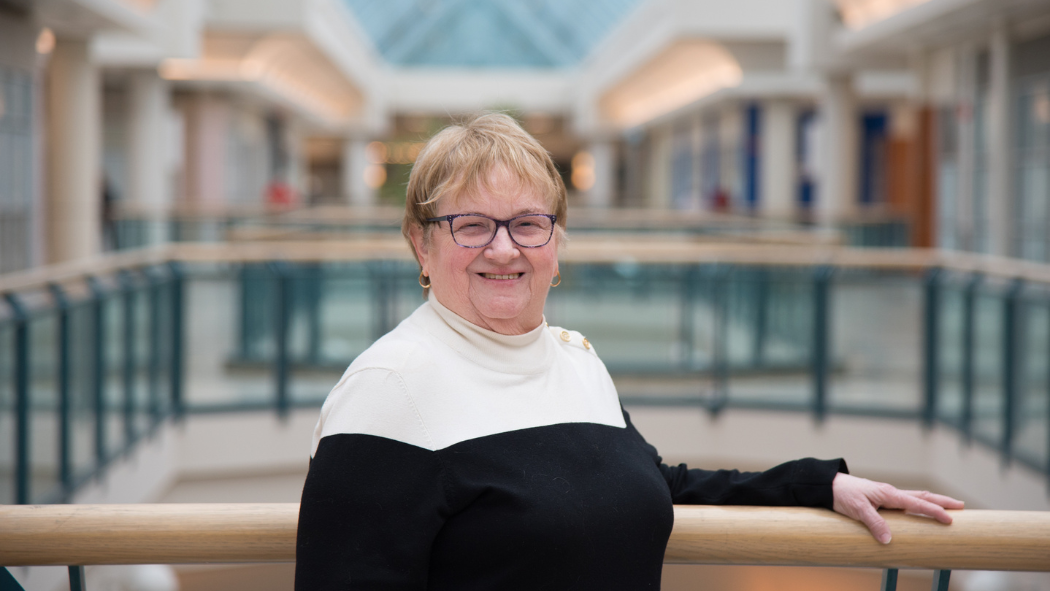
April 4, 2024
In 2013, Deb Beaupre experienced a medical emergency after complications from a previous surgery. When she couldn’t breathe, she went to hospital and was placed on hemodialysis. “I was an emergency start on ‘hemo’ and my first thought was, I'm going to die,” she recalls.
Fortunately, she found the support she needed at London Health Sciences Centre’s (LHSC) Regional Renal Program. “There's so much to take in that it becomes overwhelming and they're here, they help you and they walk that journey with you.”
Chronic kidney disease affects approximately ten per cent of the Canadian population. The kidneys are our body’s filtration system, removing excess fluid and waste. When kidneys do not work properly, the excess toxins and fluid remain, causing illness. Kidneys are the only major organ that can lose up to 80 per cent of their function without any major symptoms.
LHSC’s Regional Renal Program supports over 4,400 patients in southwestern Ontario from early diagnosis of chronic kidney disease to kidney failure, hemodialysis and transplantation.
“Kidney disease can happen for a variety of reasons,” explains Dr. Andrew House, Physician Head of the Regional Renal Program. “There might be genetic causes, there could be environmental exposures, or it could be the response or reaction to a severe infectious illness.”
For Beaupre, it was the latter.
After finding herself needing hemodialysis three times a week for four hours a day, she began to look at what alternate options were available to her.
There are various options for care available, but these can also be dependent upon medical factors. “It's a path that can have many different forks, some of which are within our influence and some of them are not,” explains Dr. House. “We try and help patients through that journey and help them identify their goals for care.”
Dialysis at home
“After I got through that phase of knowing that I wasn't going to die, I started my hemodialysis. Then, I started on peritoneal dialysis. I was able to go to bed, turn on the machine, and I still worked full time. It was really nice to be able to sleep well,” Beaupre says.
While she was successful with her home peritoneal dialysis treatment, Beaupre still wanted to consider transplant.
“I honestly didn't think I would be eligible for a kidney because of the fact that I've had a lot of surgeries. I was two years on dialysis before I proceeded to get a kidney.”
Transplant
Beaupre completed the testing and was placed on a kidney transplant waitlist. Unfortunately, her closest relatives were not eligible for donation. She tried using a matching service, but that was unsuccessful.
As Dr. House explains, live donor transplant is usually the preferred option. “Ideally, if you have somebody in your circle, whether they're a relative or not, there's much less waiting time and the quality of the kidney is going to be much higher than a kidney that's been through a traumatic process leading to death.”
There are benefits of living donor transplant over a deceased donor transplant. This includes statistically fewer rejection episodes and a longer lifespan for the transplanted kidney.
For Beaupre, her donor came from an unexpected source.
The wife of one of her co-workers decided to get tested without telling Beaupre, and later surprised her with the news. “She walked into my office with a can of kidney beans and black balloons,” Beaupre recalls. “She said, I just got a call and they want me to me tell you that you're going to get a kidney in two weeks.”
This was a life-changing moment for Beaupre, one that she treasures.
“It's a treatment. It could last my entire life or it might not,” says Beaupre. “It's walking this journey knowing that you live every moment you've been given.”
As a treatment, transplant requires continuous medication and medical care. “Transplant can also be a lengthy process and I encourage patients to start these conversations early in their care journey,” says Meghan Seaton, Pre-kidney Transplant Coordinator at the Regional Renal Program. “The sooner patients identify potential living donors, the sooner that process can start,”
Emotional rollercoaster
Beaupre expresses the emotional rollercoaster she experienced through her diagnosis and into living with her kidney transplant and wants to let people know it’s normal.
She credits the team at the Regional Renal Program for helping her work through her various emotions and the changes that were happening.
“It's a scary and personal journey, but you are never alone and you're going to get there one day at a time,” says Beaupre. “I feel fortunate that my life has been enriched by so many beautiful people that I have met that have supported me along the way.”